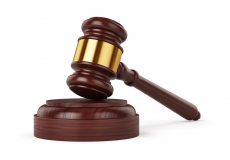Computer Offences & Cybercrime Lawyers in NSW
Our Criminal Law Team can assist you with matters related to computer offences and cybercrime, we have the experience and expertise necessary to ensure you receive the best possible outcome.
We’ve been defending the people of Newcastle, Lake Macquarie, Central Coast and the Hunter region since 1969 and have helped our clients to achieve the best possible outcomes in all Criminal Law matters.
We are used to dealing with the Police and know all the ‘ins and outs’ of the Courts and Justice system.
If you have been charged with a computer offence or cybercrime, contact our Criminal Law Team today to book a teleconference or appointment. We’ll fight vigorously to protect your freedom and rights.
Frequently Asked Questions
We’ve answered the most frequently asked questions about computer offences and cybercrime below:
What is a computer offence?
A criminal offence that relates to the use of computers. Computer offences are covered in Part 6 of the Crimes Act.
What is cybercrime?
Cybercrime refers to an existing type of criminal offence that has been committed using the Internet. Examples of cybercrime include: Cyber Terrorism, Cyber Stalking, Cyber Theft and Cyber Fraud.
Australia’s cybercrime law came into force on 1 March 2013.
Since then cybercrime has been an increasing issue and has recently become a major focus for the Police.
Is unauthorised use of a computer a criminal offence and what are the penalties?
Yes, it is an offence under Section 308C for a person to cause any unauthorised use of a computer (knowing that it is unauthorised) with the intention of committing a serious indictable offence or facilitating another person committing a serious indictable offence.
If the serious indictable offence carries a maximum penalty of ten years imprisonment or less, the matter will be dealt with in the Local Court unless an election is made for trial in the District Court. The maximum penalty which can be imposed in the Local Court is two years imprisonment.
On election to the District Court, the penalty which can be imposed is the maximum penalty applicable if the person had committed or facilitated the commission of the indictable offence.
Therefore, depending upon the indictable offence which was carried out as a consequence of this offence, this will determine the penalty which is applicable.
Is unauthorised modification of data on a computer a criminal offence and what are the penalties?
Yes, it is an offence under Section 308D for a person to cause any unauthorised modification to data held in a computer when they know that such modification is unauthorised and intends, by the modification, to impair access or to impair the reliability or security of any data held within a computer.
The offence will be dealt with in the Local Court unless an election is made for trial on indictment to the District Court. The maximum penalty that can be imposed by the Local Court is two years imprisonment. If the matter is elected to be heard before the District Court, the maximum penalty which may be imposed is ten years imprisonment.
Is it a criminal offence to possess or control data with the intention of committing a crime and what are the penalties?
Yes, it is an offence under Section 308F for a person to possess or control data with the intention of committing a serious computer offence or with the intention of facilitating the commission of a serious computer offence. The matter will be dealt with in the Local Court, unless an election is made.
The maximum penalty which can be imposed by the Local Court is two years imprisonment. If the matter proceeds by way of indictment before the District Court, the maximum penalty which may be imposed is imprisonment for three years.
Is it a criminal offence to produce, supply or obtain data with the intention of committing a crime and what are the penalties?
Yes, it is an offence under Section 308G to produce, supply or obtain data with the intention of committing a serious computer offence or with the intention of facilitating the commission of a serious computer offence.
The penalties under Section 308G are the same as an offence under Section 308F noted above.
Is it a criminal offence to access or modify restricted data without authorisation and what are the penalties?
Yes, it is an offence under Section 308H for a person to cause unauthorised access or modification to restricted data held within a computer who knows that the access or modification is unauthorised and who intends to cause that access or modification.
The maximum penalty which may be imposed is two years imprisonment.
Is it a criminal offence to cause any impairment of the reliability, security or operation of data without authorisation?
Yes, it is a criminal offence under Section 308I for any person who causes any unauthorised impairment of the reliability, security or operation of any data held within any computer disc, credit card or other device used to store electrical data by electronic means.
The maximum penalty which may be imposed is imprisonment for two years.
What is cyber stalking?
Cyber stalking is a computer offence that occurs when a person engages in harassing and/or threatening behaviour via the Internet, i.e. emails, social networks or chat rooms.
Related Article: Cyber harassment, cyber stalking and cyber bullying: the offences and penalties
What is cyber terrorism?
Cyber terrorism is a computer offence that occurs when a person engages in terrorising and/or disruptive behaviour via the Internet, i.e. a disgruntled employee hacking into a former employer’s computer network and shutting it down.
What is cyber theft?
Cyber theft is a computer offence that occurs when a person steals something via the Internet. Cyber thieves often steal personal information, financial records, trade secrets and intellectual property.
What is cyber fraud?
Cyber fraud is fraud that has been committed deliberately, for unfair or unlawful gain, using one or more elements of Internet services, or software with Internet access, whereby the use of Internet was central to the crime. For more information, visit our page on cyber fraud.
 Liability limited by a scheme approved under Professional Standards Legislation
Liability limited by a scheme approved under Professional Standards Legislation















































